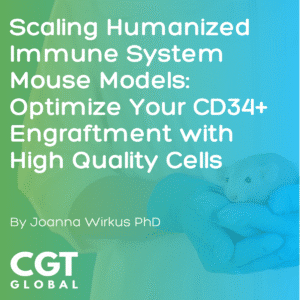In light of the recent article published in Nature, human germline genome editing in the US has taken a front and center stage in the ethical principles and scientific boundaries of modern science. Researchers at the Oregon Health and Science University (OHSU) in Portland, led by reproductive biologist Shoukhrat Mitalipov, corrected a gene mutation responsible for the thickening of the heart muscle in viable human embryos using CRISPR-Cas9 gene editing. Targeting a dominant mutation that leads to heart failure, the researchers obtained about 70% success rate in fixing the mutation. The success rate was due to technical advances that had previously limited other groups trying to repair inherited diseases. The research demonstrated the feasibility of eliminating or correcting a genetically inherited disease.
According to the Genetic Disease Foundation, there are over 6,000 genetic disorders including Down syndrome, Alzheimer’s, Sickle-cell disease, hemophilia, and cystic fibrosis1. The authors targeted only one of the 6,000 inherited diseases, hypertrophic cardiomyopathy. This inherited disease affects 1 in 500 adults and has no boundaries regarding race or sex2. Sadly, in teenagers and young adults, it is responsible for cardiac arrest3. The impact of this article brings overwhelming hope to individuals affected with an inherited disease. However, changes to the genetic makeup of individuals raise many concerns.
In a response to potential misuse and poor oversight of genome editing on humans, a policy statement was issued by 11 international groups to address ethical principles, scientific boundaries, and policy issues and published in The American Journal of Human Genetics. The groups included representatives from the American Society of Human Genetics, UK Association of Genetic Nurses and Counsellors, Canadian Association of Genetic Counsellors, International Genetic Epidemiology Society, and US National Society of Genetic Counselors. It was further endorsed by the American Society for Reproductive Medicine, Asia Pacific Society of Human Genetics, British Society for Genetic Medicine, Human Genetics Society of Australasia, Professional Society of Genetic Counselors in Asia, and Southern African Society for Human Genetics. The authors agreed on the following:
- At this time, given the nature and number of unanswered scientific, ethical, and policy questions, it is inappropriate to perform germline gene editing that culminates in human pregnancy.
- Currently, there is no reason to prohibit in vitro germline genome editing on human embryos and gametes, with appropriate oversight and consent from donors, to facilitate research on the possible future clinical applications of gene editing. There should be no prohibition on making public funds available to support this research.
- Future clinical application of human germline genome editing should not proceed unless, at a minimum, there is:
- A compelling medical rationale.
- An evidence base that supports its clinical use.
- An ethical justification.
- A transparent public process to solicit and incorporate stakeholder input.
Although scientific breakthroughs can bring new hope to the prevention and cure of many human diseases, it is important to make sure that reasonable guidelines and cautions are used when adopting new and powerful technologies. Additionally, as pointed out by the members of the 11 international groups, it is equally important to make sure the medical and scientific communities, persons and families dealing with genetically based disabilities, and the general public is engaged when weighing the risks, benefits, alternatives, unknown consequences, and access to germline genome-editing.
References:
- Genetic Disease Foundation
https://www.geneticdiseasefoundation.org/ - American Heart Association
https://www.heart.org/HEARTORG/Conditions/More/Cardiomyopathy/Hypertrophic-Cardiomyopathy_UCM_444317_Article.jsp#.WYs1dtPytTY - Center for Disease Control and Prevention
https://www.cdc.gov/heartdisease/cardiomyopathy.htm






